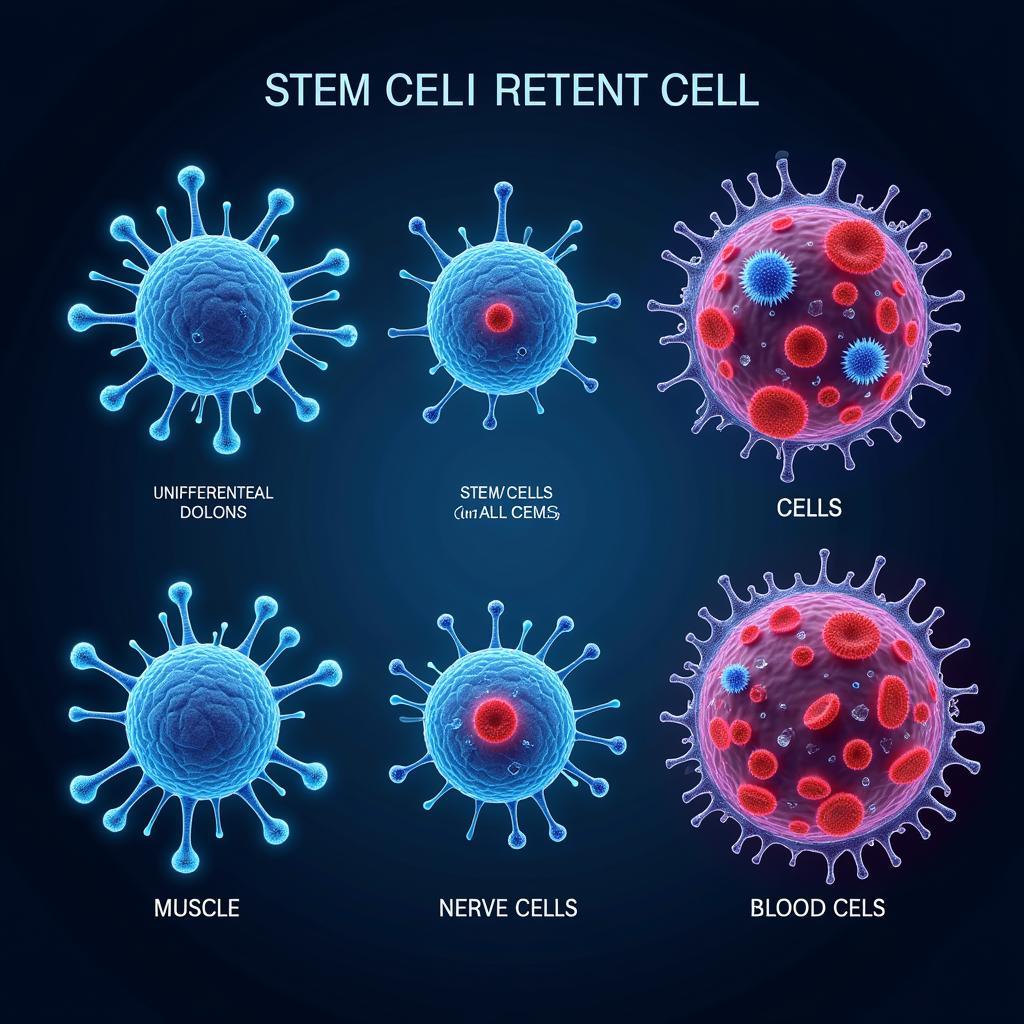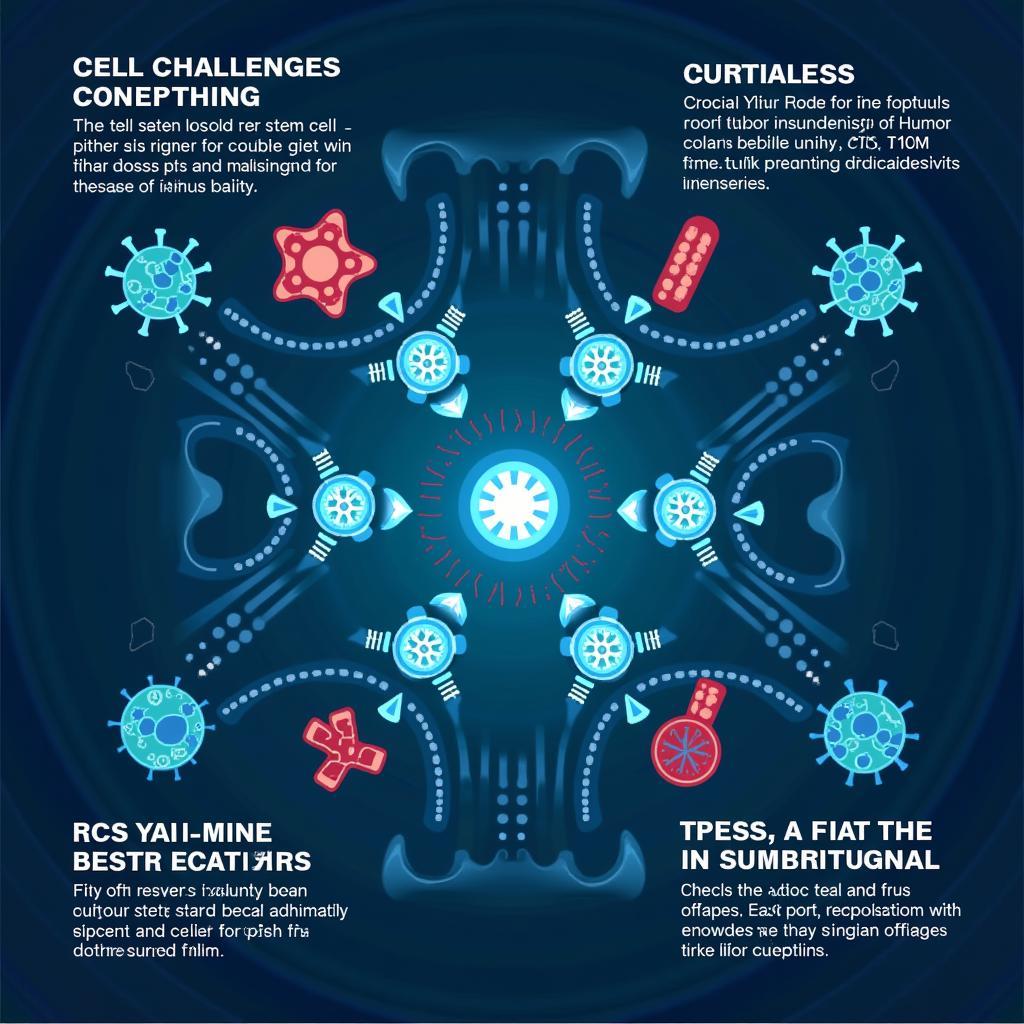Stem cell research stands at the forefront of medical innovation, offering the potential to revolutionize healthcare as we know it. This rapidly evolving field explores the unique properties of stem cells, which have the remarkable ability to develop into different cell types in the body. While the promise of regenerative medicine and groundbreaking therapies shines brightly, it’s crucial to examine the ethical considerations and scientific challenges that stem cell research presents.
Understanding the Power and Potential of Stem Cells
Stem cells are essentially the building blocks of life, possessing the remarkable ability to differentiate into specialized cell types that make up our organs and tissues. This unique characteristic makes them invaluable tools for medical research and therapeutic applications. Scientists are particularly interested in harnessing their potential to:
- Repair damaged tissues: Stem cells could be used to regenerate damaged heart tissue after a heart attack, replace insulin-producing cells in individuals with diabetes, or even repair spinal cord injuries.
- Treat degenerative diseases: Conditions like Parkinson’s disease, Alzheimer’s disease, and macular degeneration, all involve the loss of specific cell types. Stem cells hold the potential to replenish these lost cells and slow or even reverse disease progression.
- Develop new drugs and therapies: Stem cells offer a valuable platform for drug testing and disease modeling. By studying how stem cells differentiate and develop into different cell types, researchers can gain a deeper understanding of disease mechanisms and develop more effective treatments.
 Stem Cell Differentiation Process
Stem Cell Differentiation Process
The Ethical Tightrope: Navigating the Controversies
Despite the immense promise of stem cell research, ethical concerns remain a significant point of discussion. The most contentious issue revolves around the use of embryonic stem cells, which are derived from human embryos. Opponents argue that this practice destroys potential human life, raising complex moral and philosophical questions.
However, researchers are increasingly focusing on alternative sources of stem cells, such as:
- Adult stem cells: Found in various tissues of the body, adult stem cells offer a less controversial source, although their potential for differentiation is more limited compared to embryonic stem cells.
- Induced pluripotent stem cells (iPSCs): These are adult cells that have been reprogrammed back to an embryonic-like state, offering a potentially unlimited source of patient-specific stem cells without the ethical concerns associated with embryos.
While these alternatives hold promise, ethical considerations extend beyond the source of stem cells. Issues like informed consent, patient privacy, and the potential for genetic manipulation also require careful examination to ensure responsible and ethical research practices.
“The future of stem cell research hinges on our ability to balance scientific progress with ethical responsibility. Open dialogue and rigorous ethical frameworks are essential to navigate this complex landscape.” – Dr. Emily Carter, Bioethics Professor at Columbia University.
Scientific Hurdles on the Path to Progress
While stem cell research offers remarkable potential, several scientific challenges need to be addressed before its full therapeutic benefits can be realized.
- Controlling cell differentiation: Directing stem cells to differentiate into specific cell types in a controlled and predictable manner remains a major challenge.
- Immune rejection: The immune system may recognize transplanted stem cells as foreign and reject them. Strategies to minimize immune rejection are crucial for the success of stem cell therapies.
- Tumor formation: There’s a risk that stem cells, with their capacity for rapid growth and division, could form tumors. Rigorous safety protocols and long-term monitoring are essential to mitigate this risk.
 Stem Cell Research: Challenges and Future Directions
Stem Cell Research: Challenges and Future Directions
These scientific hurdles require ongoing research and innovation. Scientists are constantly working to develop new techniques, such as gene editing tools like CRISPR-Cas9, to overcome these challenges and unlock the full potential of stem cell therapies.
Conclusion: Weighing the Scales of Progress
Stem cell research presents a complex tapestry woven with the threads of hope, ethical dilemmas, and scientific challenges. It holds the potential to revolutionize medicine, offering new hope for treating currently incurable diseases. However, it’s crucial to proceed with caution, ensuring that ethical considerations guide every step of the journey.
As research progresses and scientific hurdles are overcome, stem cell therapies may one day become commonplace, transforming the landscape of healthcare and offering a brighter future for countless individuals.
FAQs About Stem Cell Research
-
What types of diseases can stem cell therapy potentially treat?
Stem cell therapy holds promise for a wide range of diseases, including heart disease, diabetes, Parkinson’s disease, Alzheimer’s disease, spinal cord injuries, and more. -
Is stem cell therapy safe?
Like any medical procedure, stem cell therapy carries some risks, including immune rejection and tumor formation. However, researchers are constantly working to improve the safety and efficacy of these therapies. -
How far away are we from widespread use of stem cell therapies?
While stem cell therapies are already being used to treat certain conditions, widespread use is still some time away. More research is needed to overcome scientific challenges and ensure the long-term safety and effectiveness of these therapies.
For further insights into cutting-edge research in related fields, explore these resources:
If you have questions or require specialized assistance, our team is here to help. Contact us at 0904826292, email research@gmail.com, or visit us at No. 31, Alley 142/7, P. Phú Viên, Bồ Đề, Long Biên, Hà Nội, Việt Nam. We offer 24/7 customer support to address your needs.